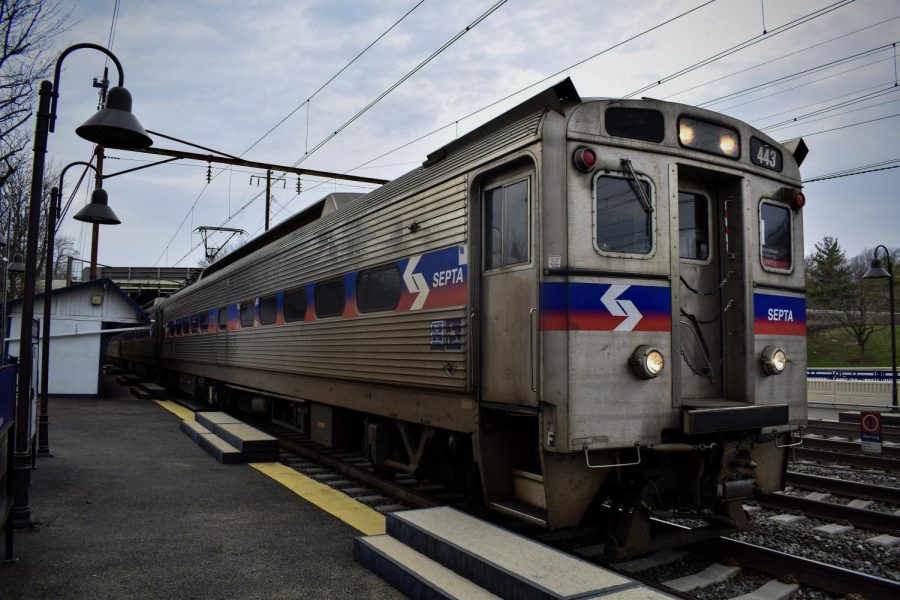New SEPTA Stop to KOP
Brian Luppy/ Villanovan Photography
SETPA will soon have a stop at KOP.
March 29, 2023
One of the appeals of living on campus at Villanova is having easy access to three train stations, operated by the Southeastern Pennsylvania Transportation Authority (SEPTA). Many students take advantage of these services, using them to commute or plan outings to places like Philadelphia and Suburban Square. However, if students want to go to the King of Prussia (KOP) Mall, a frequent attraction for underclassmen, their options are to either take the school bus shuttle or pay for an Uber, which don’t always provide the same flexibility as the train does.
Christina Kurian, a senior commuter student at Villanova who frequents SEPTA trains, reflected on her experience as a freshman.
“I remember having to take the shuttle from South [Campus] or get an Uber,” Kurian said. “The shuttle was nice as it was free, but it only ran at certain times, so I would always plan my visits around the shuttle. Ubering was good but expensive if I was going alone and not with any friends.”
Recently, SEPTA has made plans to add extra stops to KOP by extending the Norristown High Speed Line (NHSL), which can help provide another option for students looking to travel off-campus.
“With the addition of KOP Rail to SEPTA’s transportation network, Greater Philadelphia Area commuters, shoppers, students and visitors will have access to frequent and reliable service between Center City, University City and King of Prussia—the Delaware Valley’s three largest employment centers—in 45 minutes,” the website outline the King of Prussia Rail Project read.
Thus, this project would have a positive impact on both the Philadelphia community and on our campus, as those who ride the SEPTA will have greater access to these opportunities.
“As someone who uses the train often, I think the extra stop would be a great opportunity, especially for underclassmen who don’t have cars on campus,” Kurian said. “It would make it much easier for students to get off campus and visit local places.”
Though construction was supposed to begin in 2024, a press release published by SEPTA on March 17th, 2023 now states that the King of Prussia Rail Project is being put on hold for the foreseeable future, as the cost of the project is increasing rapidly and there is not enough room in the budget to proceed. At the onset of the project in 2020, the budget was reported to be approximately $2.08 billion, but, three years later, it has now risen to approximately $3.02 billion.
SEPTA’s General Manager and CEO Leslie Richards commented on this in the press release, voicing her dissatisfaction with this setback.
“SEPTA’s capital budget has been underfunded for decades,” she said. “This has left the Authority with significantly fewer resources than peer agencies to pursue system expansion while also addressing critical infrastructure needs. With the funding we have currently, SEPTA must prioritize essential infrastructure work and safety and security improvements to maximize the reliability and effectiveness of our aging system.”
Richards also reiterated the importance of this project and the impact it would have on the community, one that will now be delayed.
“We are disappointed,” Richards said. “King of Prussia Rail would have delivered real benefits to our city and region by providing reliable public transportation connecting our three largest employment hubs in Center City, University City and King of Prussia. It would have eased congestion on area roadways and reduced air pollution. We greatly appreciate all the hard work that our staff has put into this initiative, and we are grateful for the support of those who advocated for the project alongside us.”
Given that these changes and additional stops will not be completed in the near future, Kurian provided other suggestions that Villanova could incorporate to make it easier for students to take advantage of SEPTA.
“SEPTA has recently instituted the use of keycards on most trains, which makes it quite easy to pay for tickets,” Kurian said. “It would be nice if Villanova provided an allowance for students to use so that it would further incentivize train usage. Also, since train times can run inconsistently, it would be good if there was an ‘arrivals and departure’ signage that could display any delays on the line.”
Kurian also encourages Villanovans to utilize SEPTA more, as it is a great resource to have on campus and can help students explore the local areas outside of campus.







